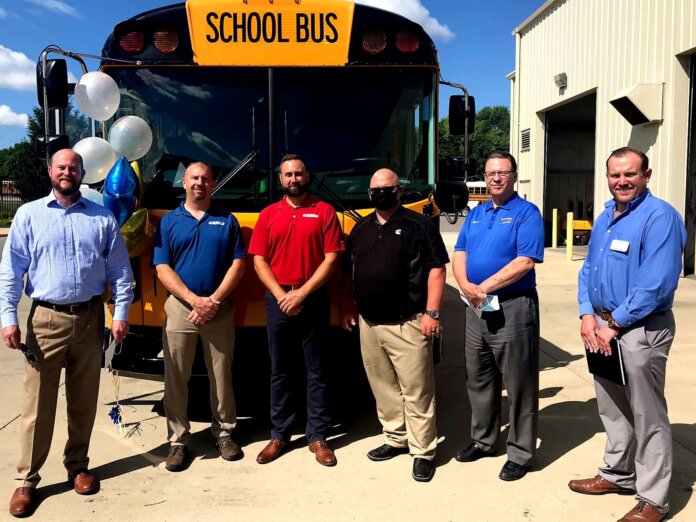Carmel Clay Schools has welcomed the first all-electric school bus in Indiana, as a part of its initiative to move to greener, alternative-fuel buses.
The zero-emissions bus, which was built by manufacturer Blue Bird and powered by the Cummins PowerDrive system, will reduce harmful emissions and create a safer environment for the students and communities in Carmel, Ind.
“Carmel Clay Schools has been pursuing alternatively fueled school buses for several years, and we see this as another step in expanding our efforts by introducing this zero-emission electric school bus into our fleet,” says Ron Farrand, director of facilities and transportation for Carmel Clay Schools.
“We believe it is important as a pilot project to show how this type of bus will perform and to further reduce nitrogen oxides and other emissions in our school district,” he adds.
Carmel Clay Schools introduced the Blue Bird electric bus into its fleet using the Carmel Clay School Bus Replacement Fund, with help from the Indiana Volkswagen Environmental Mitigation Trust Fund.
South Shore Clean Cities developed and submitted the successful grant application and serves as project manager for the electric school bus project. In that role, South Shore Clean Cities worked with infrastructure providers and school officials to provide critical education on charging infrastructure, charging best practices for energy efficiency and maximum range and reliability. The nonprofit is also managing the destruction of the diesel bus the new electric bus is replacing as well as required reporting and metrics.
The data collected from this project will be used to serve as an example to help other school districts follow Carmel Clay Schools in implementing zero-emission school buses into their fleets.
The district installed two charging stations – one at its east side lot and one at its bus garage – to allow the bus to recharge in the same location where maintenance tasks are being performed. Manufacturers like Blue Bird recommend setups such as this to take advantage of opportunity charging, allowing electric buses to be charged when the bus is not running. Maintenance on a Blue Bird electric bus is minimal, which eliminates the need for conventional fuel, air filters and transmission service and offers comparable performance to a traditional internal combustion engine.
The district has already begun implementing alternative fuel solutions into its fleet, with 24 of its existing buses being powered by propane autogas. The district plans to introduce more alternatively fueled buses in the future, such as electric, to create cleaner air for their students and communities.
Photo: Carmel Clay partners





